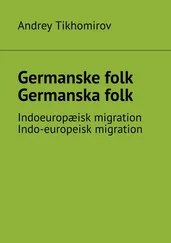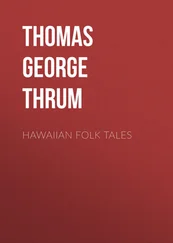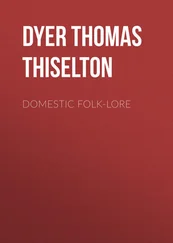Thomas Dyer - Folk-lore of Shakespeare
Здесь есть возможность читать онлайн «Thomas Dyer - Folk-lore of Shakespeare» — ознакомительный отрывок электронной книги совершенно бесплатно, а после прочтения отрывка купить полную версию. В некоторых случаях можно слушать аудио, скачать через торрент в формате fb2 и присутствует краткое содержание. Жанр: foreign_antique, foreign_prose, на английском языке. Описание произведения, (предисловие) а так же отзывы посетителей доступны на портале библиотеки ЛибКат.
- Название:Folk-lore of Shakespeare
- Автор:
- Жанр:
- Год:неизвестен
- ISBN:нет данных
- Рейтинг книги:4 / 5. Голосов: 1
-
Избранное:Добавить в избранное
- Отзывы:
-
Ваша оценка:
- 80
- 1
- 2
- 3
- 4
- 5
Folk-lore of Shakespeare: краткое содержание, описание и аннотация
Предлагаем к чтению аннотацию, описание, краткое содержание или предисловие (зависит от того, что написал сам автор книги «Folk-lore of Shakespeare»). Если вы не нашли необходимую информацию о книге — напишите в комментариях, мы постараемся отыскать её.
Folk-lore of Shakespeare — читать онлайн ознакомительный отрывок
Ниже представлен текст книги, разбитый по страницам. Система сохранения места последней прочитанной страницы, позволяет с удобством читать онлайн бесплатно книгу «Folk-lore of Shakespeare», без необходимости каждый раз заново искать на чём Вы остановились. Поставьте закладку, и сможете в любой момент перейти на страницу, на которой закончили чтение.
Интервал:
Закладка:
“Plucking geese” was formerly a barbarous sport of boys (“Merry Wives of Windsor,” v. 1), which consisted in stripping a living goose of its feathers. 212 212 Singer’s “Notes,” 1875, vol. i. p. 283.
In “Coriolanus” (i. 4), the goose is spoken of as the emblem of cowardice. Marcius says:
“You souls of geese,
That bear the shapes of men, how have you run
From slaves that apes would beat!”
Goldfinch. The Warwickshire name 213 213 See “Archæologia,” vol. iii. p. 33.
for this bird is “Proud Tailor,” to which, some commentators think, the words in “1 Henry IV.” (iii. 1) refer:
“ Lady P. I will not sing.
Hotsp. ’Tis the next way to turn tailor, or be red-breast teacher.”
It has, therefore, been suggested that the passage should be read thus: “’Tis the next way to turn tailor, or red-breast teacher,” i. e. , “to turn teacher of goldfinches or redbreasts.” 214 214 Nares’s “Glossary,” vol. ii. p. 693. Some think that the bullfinch is meant.
Singer, 215 215 Singer’s “Notes,” 1875, vol. v. p. 82; see Dyce’s “Glossary,” p. 433.
however, explains the words thus: “Tailors, like weavers, have ever been remarkable for their vocal skill. Percy is jocular in his mode of persuading his wife to sing; and this is a humorous turn which he gives to his argument, ‘Come, sing.’ ‘I will not sing.’ ‘’Tis the next [ i. e. , the readiest, nearest] way to turn tailor, or redbreast teacher’ – the meaning being, to sing is to put yourself upon a level with tailors and teachers of birds.”
Gull. Shakespeare often uses this word as synonymous with fool. Thus in “Henry V.” (iii. 6) he says:
“Why, ’tis a gull, a fool.”
The same play upon the word occurs in “Othello” (v. 2), and in “Timon of Athens” (ii. 1). In “Twelfth Night” (v. 1) Malvolio asks:
“Why have you suffer’d me to be imprison’d,
Kept in a dark house, visited by the priest,
And made the most notorious geck and gull
That e’er invention played on? tell me why.”
It is also used to express a trick or imposition, as in “Much Ado About Nothing” (ii. 3): “I should think this a gull, but that the white-bearded fellow speaks it.” 216 216 Some doubt exists as to the derivation of gull . Nares says it is from the old French guiller . Tooke holds that gull, guile, wile, and guilt are all from the Anglo-Saxon “wiglian, gewiglian,” that by which any one is deceived. Harting’s “Ornithology of Shakespeare,” p. 267.
“Gull-catchers,” or “gull-gropers,” to which reference is made in “Twelfth Night” (ii. 5), where Fabian, on the entry of Maria, exclaims: “Here comes my noble gull-catcher,” were the names by which sharpers 217 217 See D’Israeli’s “Curiosities of Literature,” vol. iii. p. 84.
were known in Shakespeare’s time. 218 218 See Thornbury’s “Shakespeare’s England,” vol. i. pp. 311-322.
The “gull-catcher” was generally an old usurer, who lent money to a gallant at an ordinary, who had been unfortunate in play. 219 219 Nares’s “Glossary,” vol. i. p. 394.
Decker devotes a chapter to this character in his “Lanthorne and Candle-light,” 1612. According to him, “the gull-groper is commonly an old mony-monger, who having travailed through all the follyes of the world in his youth, knowes them well, and shunnes them in his age, his whole felicitie being to fill his bags with golde and silver.” The person so duped was termed a gull, and the trick also. In that disputed passage in “The Tempest” (ii. 2), where Caliban, addressing Trinculo, says:
“sometimes I’ll get thee
Young scamels from the rock.”
some think that the sea-mew, or sea-gull, is intended, 220 220 Harting’s “Ornithology of Shakespeare,” p. 269.
sea-mall, or sea-mell, being still a provincial name for this bird. Mr. Stevenson, in his “Birds of Norfolk” (vol. ii. p. 260), tells us that “the female bar-tailed godwit is called a ‘scammell’ by the gunners of Blakeney. But as this bird is not a rock-breeder, 221 221 Aldis Wright’s “Notes to ‘The Tempest’,” 1875, pp. 120, 121.
it cannot be the one intended in the present passage, if we regard it as an accurate description from a naturalist’s point of view.” Holt says that “scam” is a limpet, and scamell probably a diminutive. Mr. Dyce 222 222 See Dyce’s “Shakespeare,” vol. i. p. 245.
reads “scamels,” i. e. , the kestrel, stannel, or windhover, which breeds in rocky situations and high cliffs on our coasts. He also further observes that this accords well with the context “from the rock,” and adds that staniel or stannyel occurs in “Twelfth Night” (ii. 5), where all the old editions exhibit the gross misprint “stallion.”
Hawk. The diversion of catching game with hawks was very popular in Shakespeare’s time, 223 223 See Strutt’s “Sports and Pastimes,” 1876, pp. 60-97, and “Book of Days,” 1863, vol. ii. pp. 211-213; Smith’s “Festivals, Games, and Amusements,” 1831, p. 174.
and hence, as might be expected, we find many scattered allusions to it throughout his plays. The training of a hawk for the field was an essential part of the education of a young Saxon nobleman; and the present of a well-trained hawk was a gift to be welcomed by a king. Edward the Confessor spent much of his leisure time in either hunting or hawking; and in the reign of Edward III. we read how the Bishop of Ely attended the service of the church at Bermondsey, Southwark, leaving his hawk in the cloister, which in the meantime was stolen – the bishop solemnly excommunicating the thieves. On one occasion Henry VIII. met with a serious accident when pursuing his hawk at Hitchin, in Hertfordshire. In jumping over a ditch his pole broke, and he fell headlong into the muddy water, whence he was with some difficulty rescued by one of his followers. Sir Thomas More, writing in the reign of Henry VIII., describing the state of manhood, makes a young man say:
“Man-hod I am, therefore I me delyght
To hunt and hawke, to nourish up and fede
The greyhounde to the course, the hawke to th’ flight,
And to bestryde a good and lusty stede.”
In noticing, then, Shakespeare’s allusions to this sport, we have a good insight into its various features, and also gain a knowledge of the several terms associated with it. Thus frequent mention is made of the word “haggard” – a wild, untrained hawk – and in the following allegory (“Taming of the Shrew,” iv. 1), where it occurs, much of the knowledge of falconry is comprised:
“My falcon now is sharp, and passing empty;
And, till she stoop, she must not be full-gorged, 224 224 “A hawk full-fed was untractable, and refused the lure – the lure being a thing stuffed to look like the game the hawk was to pursue; its lure was to tempt him back after he had flown.”
For then she never looks upon her lure.
Another way I have to man my haggard,
To make her come, and know her keeper’s call;
That is, to watch her, as we watch these kites
That bate, and beat, and will not be obedient.
She eat no meat to-day, nor none shall eat;
Last night she slept not, nor to-night she shall not.” 225 225 In the same play (iv. 2) Hortensio describes Bianca as “this proud disdainful haggard.” See Dyce’s “Glossary,” p. 197; Cotgrave’s “French and English Dictionary,” sub. “Hagard;” and Latham’s “Falconry,” etc., 1658.
Интервал:
Закладка:
Похожие книги на «Folk-lore of Shakespeare»
Представляем Вашему вниманию похожие книги на «Folk-lore of Shakespeare» списком для выбора. Мы отобрали схожую по названию и смыслу литературу в надежде предоставить читателям больше вариантов отыскать новые, интересные, ещё непрочитанные произведения.
Обсуждение, отзывы о книге «Folk-lore of Shakespeare» и просто собственные мнения читателей. Оставьте ваши комментарии, напишите, что Вы думаете о произведении, его смысле или главных героях. Укажите что конкретно понравилось, а что нет, и почему Вы так считаете.












